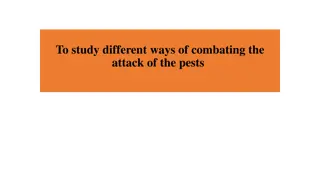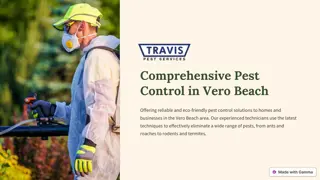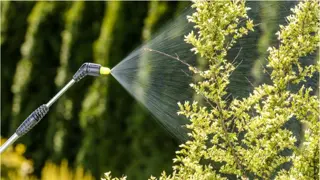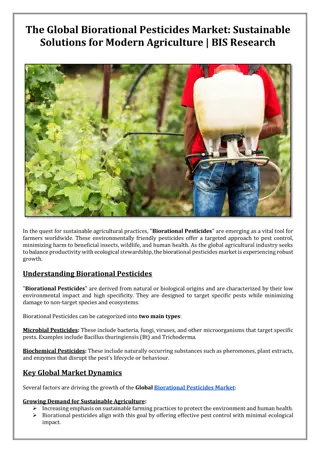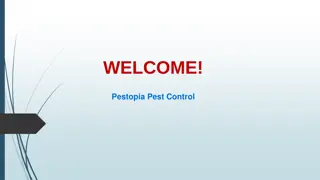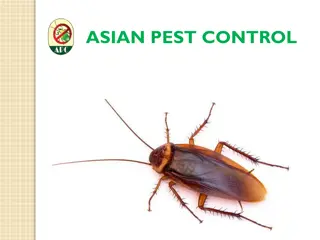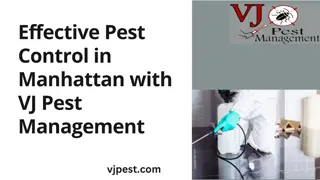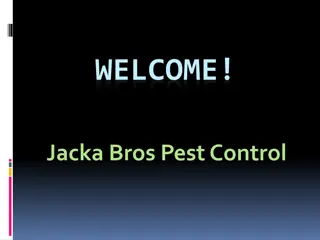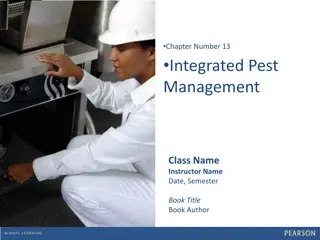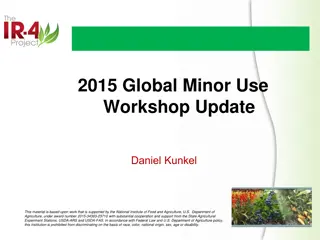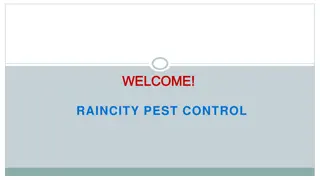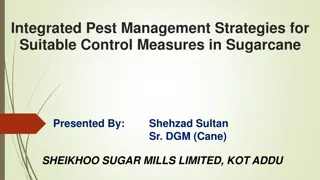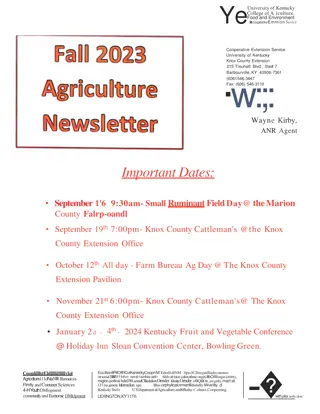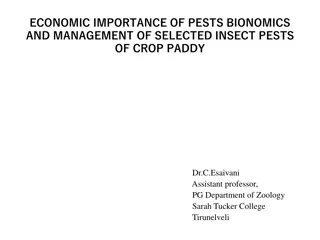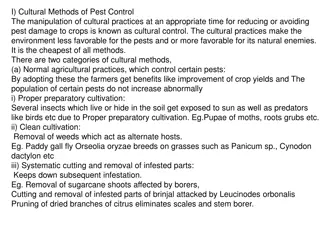Understanding Pest Control and Types of Pesticides
Pest control is crucial to safeguarding health and property by managing pests like rodents, insects, and more. Various pest control methods are utilized to alleviate infestations. Moreover, different types of pesticides, such as insecticides and herbicides, are employed for pest management, each with distinct functions and risks. Understanding the significance of pest control and the variety of pests and pesticides available can aid in effective pest management practices.
Download Presentation

Please find below an Image/Link to download the presentation.
The content on the website is provided AS IS for your information and personal use only. It may not be sold, licensed, or shared on other websites without obtaining consent from the author. Download presentation by click this link. If you encounter any issues during the download, it is possible that the publisher has removed the file from their server.
E N D
Presentation Transcript
DEPARTMENT OF NUTRITION AND DEPARTMENT OF NUTRITION AND DIETETICS DIETETICS FOOD SE RVIC E F A C IL ITY II M .Sc FOOD SE R VIC E M A N A G E M E N T A N D D IE TE TIC S SU B JE C T IN C H A RG E : V .A N ITH A
PEST CONTROL: The term pest control refers to the practice of regulating or managing different pest species that cause great damage to human, animals and plants. There are various pest control methods that are used to control pest infestation or keep them at manageable levels.
IMPORTANCE OF PEST CONTROL: Pest control is necessary because rodents and insects carry diseases, infest your kitchens and bedrooms, and bite you or your pets. The purpose of removing any kind of pest from your home, garage, or yard is to keep you safe and healthy. For example, rodents can leave feces on or near food they find in your kitchen.
TYPES OF PESTS: Ants Bats Bed bugs Bees Beetles Flies Mosquitoes Roaches Rodents Scorpions Snakes Spiders Termites
TYPES OF PESTICIDES: Insecticides Herbicides Fungicides Rodenticides
Insecticides Insecticides are pesticides that are formulated to kill, harm, repel or mitigate one or more species of insect. Insecticides work in different ways. Some insecticides disrupt the nervous system, whereas others may damage their exoskeletons, repel them or control them by some other means. They can also be packaged in various forms including sprays, dusts, gels, and baits. Because of these factors, each insecticide can pose a different level of risk to non-target insects, people, pets and the environment.
Herbicides A herbicide is a pesticide used to kill unwanted plants. Selective herbicides kill certain targets while leaving the desired crop relatively unharmed. Some of these act by interfering with the growth of the weed and are often based on plant hormones.
Fungicides Fungicides are biocidal chemical compounds or biological organisms used to kill parasitic fungi or their spores. A fungistatic inhibits their growth. Fungi can cause serious damage in agriculture, resulting in critical losses of yield, quality, and profit.
Rodenticides Rodenticides are pesticides that kill rodents. Rodents include not only rats and mice, but also squirrels, woodchucks, chipmunks, porcupines, nutria, and beavers. Although rodents play important roles in nature, they may sometimes require control.
Pest Control Equipment B&G sprayers. Bee Control. Backpack Sprayers. Dusters. Pest Control Hose Reels. Pest Control Spray Hoses. Bed Bug Steamers. Pest Control Granulators.
THANK YOU THANK YOU



